
Enhancing Student Outcomes and Teacher Practice through Math Mastery: A Comprehensive Study Tour and Curriculum Framework Development.
As a primary school teacher with ten years of classroom experience, I’ve had the opportunity to teach across year levels from Prep to Year 3. Throughout my teaching journey, I’ve developed a strong passion for ensuring that every student feels a sense of success in the classroom and equally, that every teacher feels confident and equipped to deliver high-quality lessons. Over time, I’ve become increasingly interested in how we can bring greater consistency and clarity to the way we teach mathematics across the early years.
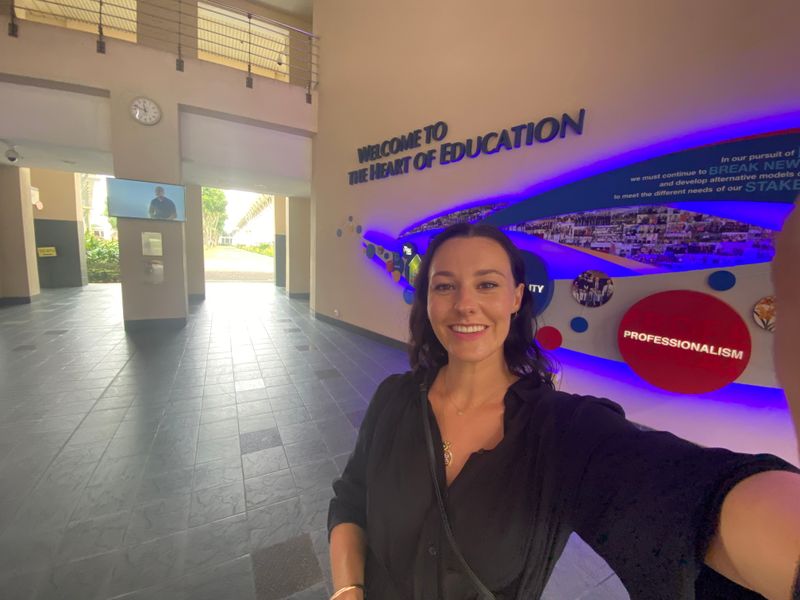
In 2024, I was fortunate to be awarded the inaugural Toowoomba Grammar School Teaching Fellowship to explore this interest more. My proposal, titled Enhancing Student Outcomes and Teacher Practice through Math Mastery: A Comprehensive Study Tour and Curriculum Framework Development, focused on investigating how the Math Mastery approach could strengthen both student understanding and teacher instruction in mathematics. This opportunity took me to Singapore to investigate the Math Mastery approach - an internationally recognised model of mathematics instruction that supports every student to achieve deep understanding through carefully sequenced, explicit teaching.
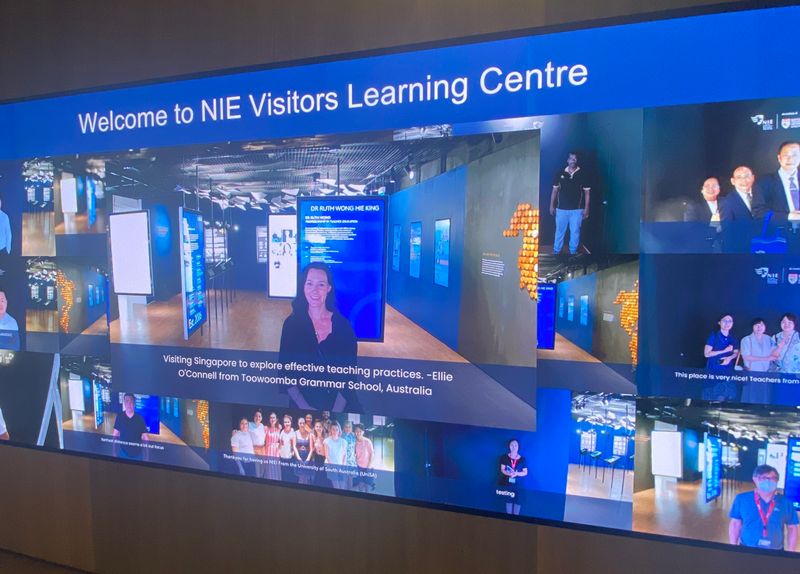
Why Mathematics? Why Now?
Across Australia, there is growing national concern about the long-term decline in mathematics achievement. Reports such as the Gonski Review (2018) highlight that many students are not mastering the basic skills needed for future learning, and that teachers need more explicit, structured tools to support all learners. In the early years of schooling—where concepts are first introduced, and mathematical mindsets are formed—it’s crucial that instruction is clear, consistent and effective. Gaps in understanding at this stage can have long-lasting effects on a child’s confidence and progress. The fellowship was an opportunity to examine international best practices and bring back evidence-informed strategies that could enhance both student outcomes and teacher practice in our own School.
Learning from Singapore: Schools and Insights
During my study tour in Singapore, I visited two leading international schools: Dulwich College and Invictus International School. Both schools use mastery-based approaches to mathematics, with structured, well-sequenced programs designed to develop deep conceptual understanding. At Dulwich College I observed math lessons from Years 1 to 5 that emphasised both mastery and practical application. The classrooms fostered a calm, focused learning environment in which teachers guided students through new concepts using clear, structured instruction, ensuring mastery through modelling, guided practice and checking for understanding before progressing. I also engaged in discussions with the school’s mathematics leadership team, who shared their planning processes and how they support teachers to differentiate within whole-class teaching.
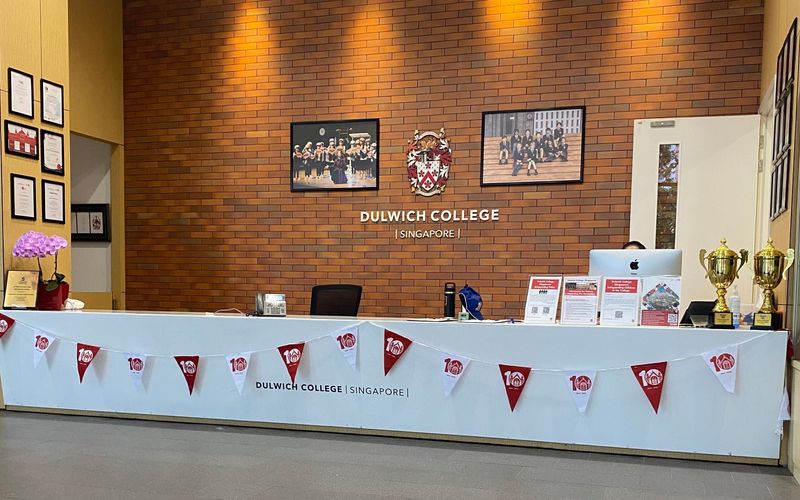
Invictus International School offered a contrasting yet equally valuable perspective. With a diverse cohort of learners and a flexible curriculum model, their team demonstrated how mastery principles can be embedded in a range of contexts. I also had the opportunity to meet with local educational consultants and curriculum developers, who offered insights into how Singapore’s national curriculum supports cumulative learning, daily review and concept mastery from the early years onwards.
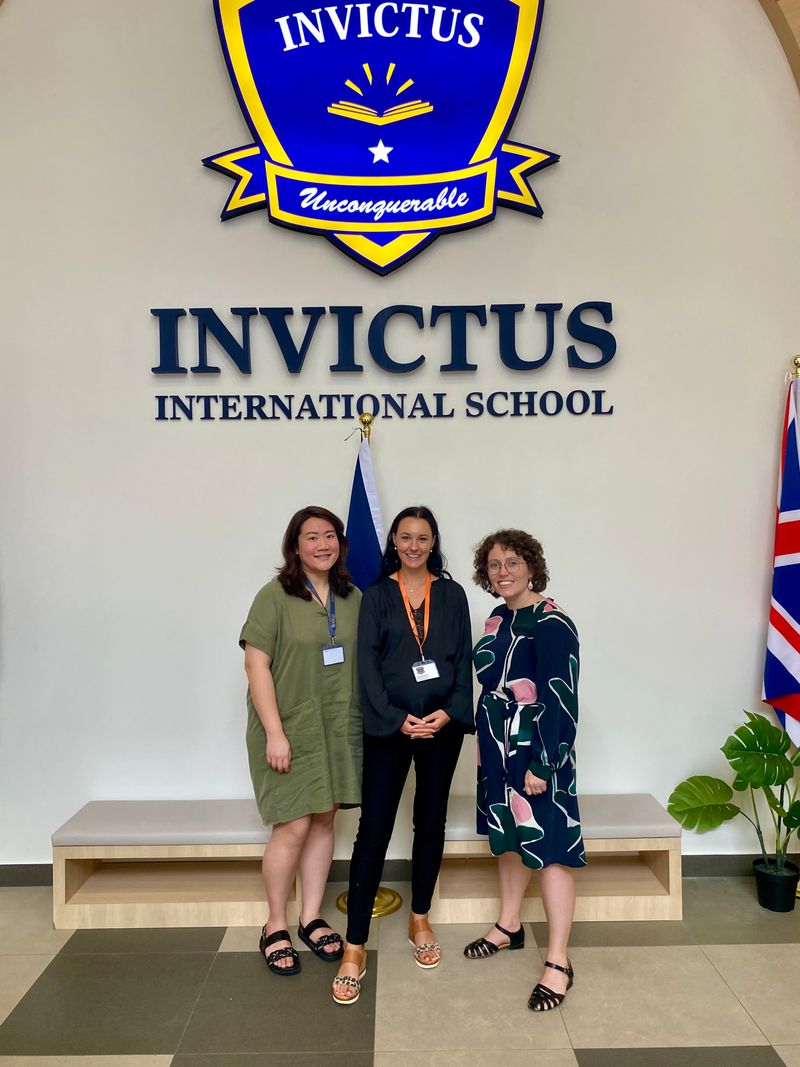
Key Findings: What Makes Mastery Work?
My observations confirmed the power of structured, explicit teaching in building strong foundations in mathematics. These were the key elements that stood out across all settings:
- Clear Learning Objectives
Teachers clearly define what students need to know and be able to do at the end of each unit or lesson.
- Whole-Class Instruction with Embedded Differentiation
Rather than streaming students by ability, mastery classrooms taught concepts to the whole class while using questioning, scaffolding and targeted support to meet individual needs.
- Corrective Instruction
Students who don't achieve mastery receive additional instruction or support to address knowledge gaps.
- Cumulative, Carefully Sequenced Learning
Each lesson built directly on the last, with time allocated for review and consolidation. This ensured that no student was left behind and that concepts were truly understood before new material was introduced.
- Mathematical Language and Reasoning
Teachers modelled precise vocabulary and encouraged students to explain their thinking. This supported deeper reasoning and helped students internalise core concepts.
- Learning Routines
Clear instructional routines and behaviours are established in every classroom, reinforcing expectations and supporting learning.
- Lesson Resources
Hands-on materials and visual examples are carefully chosen to help students connect with new concepts in ways that suit their learning needs.
- Fluency
Essential number facts are practised until automatic, helping students reduce cognitive load, enhancing students’ ability to focus on new and more complex ideas.
- Calm, Confident Learners
Most powerfully, students appeared confident, focused and proud of their mathematical thinking. The clear structure and shared learning journey contributed to a positive and inclusive classroom culture.
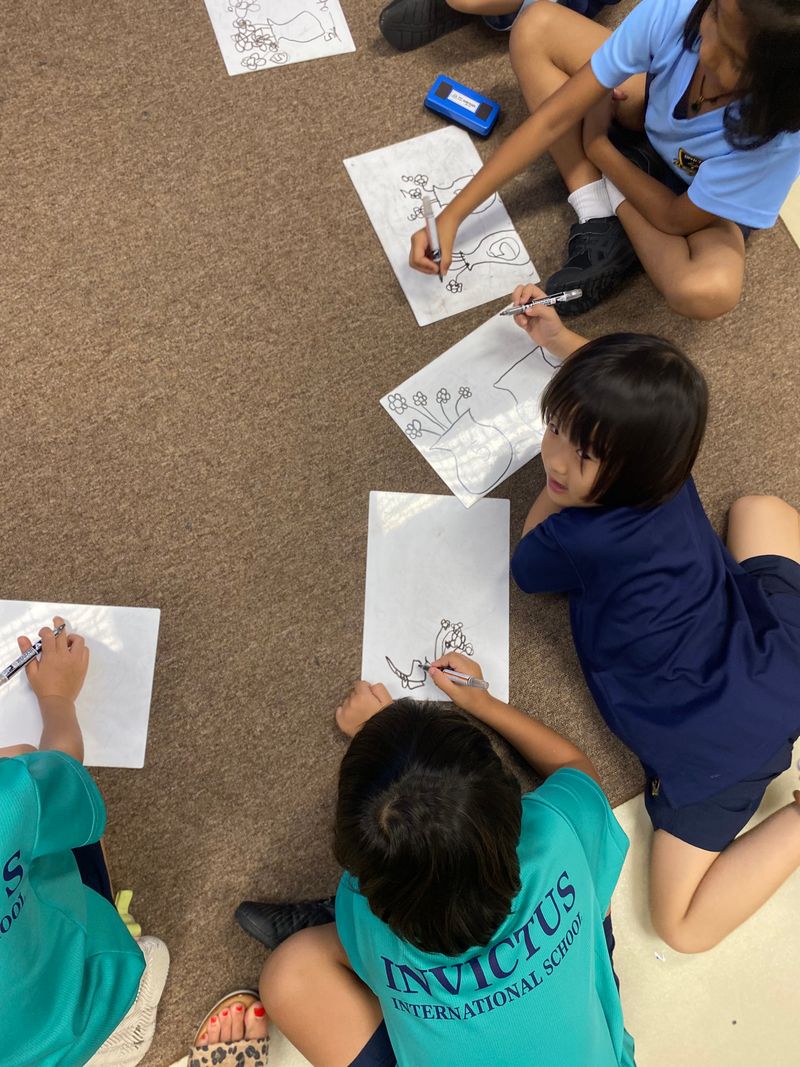
Global Perspective: Insights from Kinder World School
As a part of my research, I was able to engage in a conversation with Peter Baker, Principal Supervisor of 13 KinderWorld International Schools across Vietnam, I was able to dive deeper into how the Math Mastery approach works in large, diverse educational settings. These schools have adopted the Singapore Math model, a mastery-based framework built around explicit teaching and cumulative learning - many of the same principles I explored during my study tour.
Peter shared that their decision to adopt this approach was driven by a need for a consistent, evidence-based program that teachers could pick up quickly, deliver confidently and implement cost-effectively. “We started the explicit teaching model a couple of years back,” he explained. “We call it the KinderWorld Model. Retrieval practice to strengthen knowledge and problem-based application of learning is also included. I think it certainly makes a difference.”
What stood out to me in our discussion was just how closely their journey mirrors our own at TGS. We have already embedded strong practices in literacy through well-structured, whole-school programs that align with explicit teaching and the science of learning. However, mathematics remains an area where we see room for greater consistency and greater gains.
While our data confirms that we continue to perform above the state average in mathematics, recent NAPLAN results highlight a national decline in numeracy - a trend that we are aiming to avoid in our own School’s results. While we continue to do well, we have an opportunity and a responsibility to do even better for our boys. This is not just a local issue. In 2015, the Office of the Chief Scientist collaborated with ACARA to examine schools across Australia that had made significant improvements in numeracy over two years. Their report found that mastery-oriented environments were a consistent feature in high-performing schools (Smith et al., 2028).
When I asked Peter how the performance of his students compared to their peers in Australia, his response was compelling:
“We’ve had feedback from parents - many of whom are teachers - saying that when their children return to Australia, they are at least one to two years ahead in mathematics compared to their peers at home.”
This reinforces what global research has been saying for some time: structured, explicit, mastery-based teaching works. And more importantly, it works for all learners - not just the confident few.
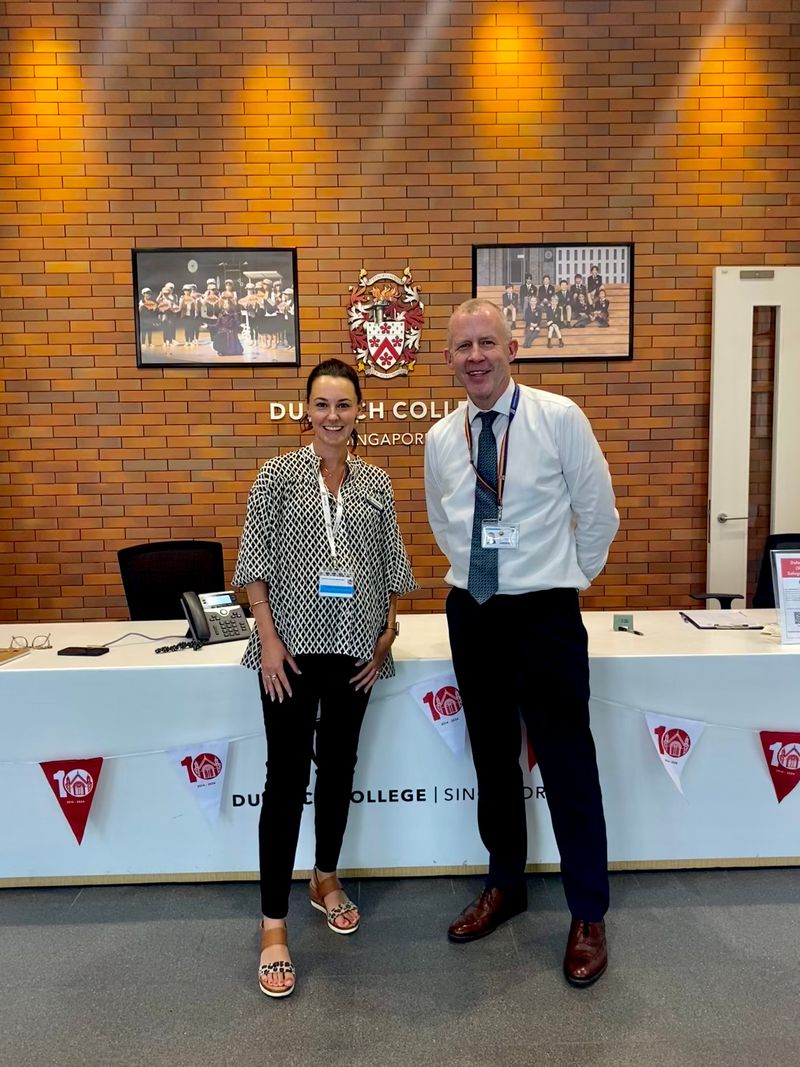
Bringing It Home: What’s Next for TGS?
I’m incredibly grateful for the opportunity this fellowship has provided - not only in shaping and deepening my own practice, but in contributing to a broader, shared vision for mathematics at TGS. This experience reinforced my belief that every student can succeed in mathematics when we give them the right tools, time and teaching. We are now laying the foundations for a clear and united approach to numeracy, one that will equip every boy with the confidence and skills to succeed - not just in the classroom, but throughout their schooling and beyond. And just as importantly, we’re building a community of confident teachers who are equipped to deliver lessons that are clear, consistent and deeply impactful.
I would like to sincerely thank Dr John Kinniburgh for granting me the opportunity to undertake this Fellowship. His support and encouragement throughout the process has been instrumental, and I am truly grateful for his guidance and mentorship. Dr Kinniburgh’s commitment to prioritising high-quality professional development for staff continues to shape a culture of growth and excellence in teaching and learning at TGS.
Latest Blog
Helpful Tips for New Boarding Parents
Name absolutely everything! Socks, undies, phone chargers, water bottles, caps. EVERYTHING!! Make sure you name items with Boy’s name & House number; most parents will put their senior house number if printing the tags so they don’t have to rename items when they move the following year (Corfe House doesn’t have a house number). Some boys find a double bed doona is a better option than single doona as it hangs down the sides of the bed a little more to keep them warmer in winter. An…
Parenting Styles: Parties and the Holidays
As the holiday season approaches, parents and caregivers find themselves immersed in the joy and bustle of festivities. Amidst the celebrations, it’s essential to pause and reflect on the pivotal role our parenting styles play in shaping our children’s attitudes and behaviours, especially concerning alcohol and other drug use. As a father of four young people with my fifth child coming into our family on 8 December 2023, I’m particularly mindful of my parenting style and my role as School…
Building the Boarding Experience - at Home
Family connections is a vital aspect of our Toowoomba Grammar School boarding program that we hold close to our heart. Our Heads of House regularly make the effort to visit our boarding families so they have a better understanding of our boarders' lives, the challenges and experiences, and staff always enjoy the warmth and hospitality provided by families. Head of Corfe House, Henry White and his wife, Samantha recently spent a weekend with the Acton family on Dalgonally Station near Julia…
A New Season for Coach Kabe
Highly respected Head of Basketball and 1st V Coach, Kabe Ciccolini is embarking on a new and inspiring chapter. This season, he takes up the role of Assistant Head of Corfe House, guiding our youngest boarders with a warmth and passion that is uniquely his own. Kabe’s decision to transition into the role of Assistant Head of Corfe House reflects his unwavering commitment to mentorship and leadership. For him, this move signifies a positive step in his career. “It’s an opportunity to further…
Embrace Every Moment
In the words of one of the greatest leaders of all time, Albus Dumbledore, “it does not do to dwell on dreams and forget to live.” The wise wizard spoke these words to Harry as he stood before the Mirror of Erised, a magical artifact that reveals one’s deepest desires. These words tell the story of the balance between our dreams and the richness of the present moment. We live in a world that often urges us to focus on our aspirations; , sometimes we get so lost in our dreams that we do not…
What is the TGS Athletic Development Academy?
As a TGS Old Boy (2003-14), sport has always been an integral part of my upbringing. As a young boy I discovered the joys of cricket, track and field and touch footy. This love of being active led me to studying Exercise Science at University and I was fortunate enough to work with a range of national and international level athletes, culminating in an internship at the Brisbane Broncos. This experience launched my career in the strength and conditioning space, allowing me to work with…
The Boarding and Day Family Connections
My husband Ben and I are four years into our boarding journey at Toowoomba Grammar School, we have two boys in Mackintosh House, Josh in Year 10 and Archie in Year 9, and a daughter Ella who is home with us for one more year before we become empty nesters. We are in the fortunate position that we live reasonably close, so we have the privilege of taking our boys home often and can attend most School events. For many of our boarding families, this is not the case, they live great distances away…
Streamline Success
Education is a transformative journey where the path we choose exerts a profound influence on our ultimate success. A streamed class is like an express locomotive: swift, efficient, and filled with eager passengers zooming towards their educational destination. Meanwhile, an unstreamed class resembles a motley group of hikers who accidentally wandered onto the wrong trail, stumbling and bickering as they struggle to find their way. Imagine the express locomotive of streamed classes, full of…
Reducing Stress: the Key to a Peaceful Life
Have you ever felt the soul-crushing burden of stress dragging your life through the mud? Ever had your precious time dwindled away at the hands of stress, while you are left powerless and alone? Well all this pain and anguish can be resolved in an instant; and all it takes is a change in the way we think. This alteration in brain chemistry is defined as mindfulness, the ability to obtain momentary awareness and recognition of our thoughts and feelings. Mindfulness is the key to defeating…